Florida Security Guard Company Insurance
8:30am - 5:00pm Mon-Fri
Will Reply in 15min*
Top Recommended Business Insurance Policies

Index
Contact Us
Phone
Location
6900 Tavistock Lakes Blvd, Suite 400, Orlando FL 32827
Florida’s security industry employs more than 87,000 licensed guards, according to the latest data from the Florida Department of Agriculture and Consumer Services. From night-time patrols in Orlando’s theme-park parking lots to concierge desks in Miami high-rises, every assignment carries unique risks that can quickly translate into six-figure losses. Insurance, therefore, is not just another line item—it's the backbone of a sustainable security business model. The following guide breaks down the policies, regulations, and best practices every Florida security guard company must understand to remain compliant, competitive, and financially protected.
Why Insurance Is Critical For Florida Security Guard Companies
Florida’s vibrant tourism economy, high population density, and year-round events create a steady demand for security services. However, these same traits present elevated exposure to bodily injury claims, property damage, and professional liability. A 2023 study by the Insurance Information Institute revealed that premises liability and negligent security lawsuits in Florida have risen 11% year-over-year, underscoring the litigation climate that guard firms face.
Moreover, Florida’s geographic location increases vulnerability to hurricanes and flooding. Guards stationed at coastal hotels or port facilities may be forced to operate during tropical storms, heightening the chance of injury and property loss. Without robust insurance coverage, even a single uninsured incident can erode profit margins and jeopardize long-term operations.
In addition to natural disasters, the diverse range of events held throughout the state—from music festivals to sporting events—further complicates the risk landscape for security firms. Each event presents unique challenges, such as crowd control and potential altercations, which can lead to claims of negligence if not handled properly. Security personnel must be adequately trained and equipped to manage these situations, and having comprehensive insurance coverage ensures that companies can defend themselves against any legal repercussions that may arise from such incidents.
Furthermore, the regulatory environment in Florida mandates that security companies adhere to stringent licensing and operational standards. This includes maintaining liability insurance, which not only protects the company but also instills confidence in clients who rely on these services for their safety. As the security industry continues to evolve, with increasing emphasis on technology and surveillance, companies that invest in insurance are better positioned to adapt to new challenges, ensuring they can provide effective and reliable services while safeguarding their financial stability.

Core Policies Every Security Guard Firm Needs
General Liability Insurance
General liability (GL) serves as the foundation for guarding operations by covering third-party bodily injury and property damage. Imagine an officer inadvertently knocking over a client’s camera rig during an event in Tampa; GL pays legal defense costs and settlements, sparing the company’s balance sheet. Most venues in Florida require at least $1 million per occurrence and $2 million aggregate limits before a guard can step on site. This requirement not only protects the security firm but also instills confidence in clients, knowing they are working with a company that prioritizes risk management. Additionally, GL policies can also cover advertising injuries, such as claims of copyright infringement, which can be particularly relevant for firms that engage in promotional activities or marketing campaigns.
Professional Liability (Errors and Omissions)
Professional liability, often called Errors and Omissions (E&O), addresses claims that the guard failed to perform contracted duties. In one recent Jacksonville case, a company was sued for negligent surveillance after a theft occurred on their watch. The claim reached $750,000—a cost largely absorbed by an E&O policy with a $1 million limit. Importantly, many client contracts in Florida’s hospitality sector now expressly request evidence of E&O coverage. This trend reflects a growing awareness of the importance of accountability in security services, as clients seek assurance that their investments are protected against potential lapses in service. Furthermore, E&O insurance can also cover legal fees associated with defending against claims, which can be particularly burdensome for smaller firms without substantial cash reserves.
Workers’ Compensation
Under Florida Statute 440, any non-construction business with four or more employees must carry workers’ compensation. Security guards, who frequently stand for hours, restrain trespassers, or navigate slippery docks, suffer musculoskeletal injuries at a rate 27% higher than the state’s average private-sector worker, according to a 2022 Occupational Safety and Health Administration (OSHA) dataset. Workers’ compensation covers medical expenses, lost wages, and rehabilitation, thereby protecting both employees and the employer from lawsuits. Moreover, implementing a robust safety program can help minimize workplace injuries, which not only protects employees but can also lead to lower insurance premiums over time. Regular training sessions on proper lifting techniques and situational awareness can be invaluable in creating a safer work environment.
Commercial Auto Insurance
Fleet vehicles, whether marked patrol cars or unmarked sedans, are integral for perimeter checks and alarm response. Florida’s no-fault system mandates Personal Injury Protection (PIP), yet it is inadequate for the higher liability common to security operations. Commercial auto policies extend bodily injury limits, add hired and non-owned coverage, and can include comprehensive and collision to protect the vehicle itself from hurricane debris or vandalism. Additionally, these policies can cover the costs associated with vehicle repairs and replacement, which is crucial for maintaining operational efficiency. Firms should also consider telematics systems that monitor driving behavior, as these can help reduce accidents and improve safety records, potentially leading to lower insurance costs.
Commercial Property Insurance
Offices house monitoring equipment, record storage, uniforms, and firearms—all expensive to replace. Property insurance reimburses losses from fire, theft, and weather events. Companies near Jacksonville’s St. Johns River or Fort Lauderdale’s Intracoastal Waterway should confirm that flood insurance riders are added, because standard property forms exclude flood damage. Furthermore, businesses should regularly assess their property values and adjust their coverage accordingly to ensure they are fully protected against potential losses. Investing in a comprehensive inventory management system can also aid in tracking assets, making it easier to file claims and recover losses in the event of a disaster.
Umbrella / Excess Liability
Given the million-dollar lawsuits typical in civil courts of Miami-Dade and Broward counties, many risk managers layer an umbrella policy of $3–$5 million on top of GL, auto, and workers’ compensation. Umbrella premiums are relatively modest compared with the additional limits they supply, making them a financially prudent hedge against catastrophic claims. This additional layer of coverage can be particularly beneficial in high-risk situations, such as large public events or high-profile client engagements, where the potential for significant claims increases. Furthermore, umbrella policies can also provide coverage for claims that may fall outside the scope of primary policies, ensuring that firms are not left vulnerable in the face of unexpected legal challenges.
Additional Coverages To Consider
Cyber Liability
Modern guard companies rely on cloud-based incident reporting, body-camera footage, and electronic key control. A 2024 report from IBM Security pegged the average cost of a U.S. data breach at $4.45 million. Cyber liability covers forensic investigations, client notification, credit monitoring, and regulatory fines when personal data from employees or clients is compromised. As cyber threats continue to evolve, security firms must also invest in robust cybersecurity training for their employees. This training not only helps in preventing breaches but also demonstrates to clients that the company is proactive about safeguarding sensitive information. Moreover, having a comprehensive cyber liability policy can enhance a company's reputation, reassuring clients that their data is in safe hands, which is increasingly becoming a deciding factor in client retention and acquisition.
Employment Practices Liability Insurance (EPLI)
Security firms employ personnel around the clock, making them susceptible to wage-and-hour disputes, discrimination claims, and wrongful termination suits. EPLI handles defense costs and settlements arising from these allegations. Florida’s Equal Employment Opportunity Commission (EEOC) filings show that such claims have trended upward, topping 5,600 in 2023 alone. The complex nature of the security industry, which often involves diverse work environments and varying employee backgrounds, can lead to misunderstandings and conflicts. Therefore, implementing clear workplace policies and regular training on harassment and discrimination can mitigate risks. Additionally, having EPLI can provide peace of mind to security companies, allowing them to focus on their core operations without the looming fear of potential lawsuits that could arise from employee-related issues.
Fidelity Bonds
Clients in banking, jewelry, or cargo logistics worry about internal theft. A fidelity bond, sometimes called an employee dishonesty bond, reimburses the client for losses if a guard steals money or property. Bonds also function as a powerful sales differentiator when competing for high-value accounts in Florida’s luxury retail districts. In an industry where trust is paramount, offering fidelity bonds can significantly enhance a security firm's credibility. By assuring clients that they are financially protected against potential employee misconduct, firms can foster stronger relationships and attract more lucrative contracts. Furthermore, the presence of fidelity bonds can encourage a culture of accountability among employees, as they understand that their actions are under scrutiny and that there are repercussions for dishonesty, ultimately leading to a more secure and trustworthy work environment.
Florida Regulatory Landscape
The Florida Division of Licensing oversees Chapters 493 and 501, which govern private security services. Beyond requiring guards to hold a “D” license and armed officers to carry a “G” license, the state enforces strict firearm training standards and periodic background checks. From an insurance standpoint, carriers often request proof of compliance before issuing policies because license infractions can nullify coverage.
Additionally, many municipalities—such as Miami Beach—layer on local ordinances mandating guard company registration and proof of insurance before issuing a business tax receipt. Failure to comply can lead to fines, business suspension, or revocation of operating permits.

Factors That Influence Premiums In The Sunshine State
Insurance underwriters evaluate a variety of elements when pricing a Florida security account:
- Crime Rate of Service Area: Firms patrolling high-crime ZIP codes in Jacksonville or Tallahassee will pay more than those stationed in gated retirement communities.
- Hurricane Exposure: Coastal counties like Monroe and Palm Beach face higher property and auto premiums because of storm surge risk.
- Payroll Size and Job Classification: Armed guards cost more to insure than unarmed positions. Overtime spikes during peak tourist season can also inflate workers’ compensation premiums.
- Claims History: A loss-free record over three to five years can yield premium credits of 10–25%. Conversely, an assault and battery claim may trigger a surcharge or even a non-renewal.
- Training Programs: Completion of recognized courses, such as ASIS International’s Private Security Officer (PSO) certification, can secure underwriting concessions.
Risk Management Practices That Lower Insurance Costs
Carriers reward proactive risk control. Routine firearm qualification, conflict-de-escalation workshops, and first-aid training reduce both frequency and severity of losses. Technology also plays a role. GPS vehicle tracking curbs reckless driving, while AI-enabled video analytics help identify trespassers before confrontations escalate.
Documentation is equally vital. Detailed incident reports, witness statements, and body-camera footage provide insurers with evidence to defend against spurious lawsuits, thereby keeping the company’s loss ratio favorable. Some insurers offer premium discounts up to 5% for firms that adopt comprehensive digital reporting platforms.
How To Choose The Right Insurance Partner
Not every agent understands the nuances of baton certifications or canine patrol exposures. Look for a broker who specializes in security, carries designations like Certified Insurance Counselor (CIC) or Certified Risk Manager (CRM), and works with “A-rated” carriers per AM Best. Request at least three competitive quotes to benchmark pricing and coverage breadth.
Evaluate value-added services, too. Carriers such as those offering complimentary driver-safety telematics or OSHA compliance portals effectively subsidize a firm’s operational improvements. Finally, confirm that the insurer’s legal defense team has Florida courtroom experience; nuance in state tort laws can win or lose a case.
Real-World Claims Scenarios
Slip-and-Fall At A Shopping Mall
A guard at a Fort Myers mall escorted guests during a rainstorm. The wet floor lacked warning signs, and a patron slipped, fracturing an ankle. The victim’s attorney filed a $400,000 claim naming the mall and guard company as co-defendants. General liability covered defense costs and a $210,000 settlement, preserving the client relationship.
Excessive Force Allegation
During Spring Break in Panama City Beach, an intoxicated individual resisted removal from a nightclub. Cell-phone videos of the guard’s takedown went viral, leading to an excessive-force suit. Professional liability picked up the $185,000 legal bill, while the firm’s umbrella paid an additional $1 million after a jury verdict, illustrating why excess limits are indispensable.
Data Breach In A Remote Monitoring Center
Hackers infiltrated a St. Petersburg video command center, capturing footage of a celebrity’s estate. TMZ offered to buy the stolen clips, sparking a media frenzy. Cyber liability covered digital forensics, public relations, and a $350,000 settlement with the celebrity’s legal team, preventing the incident from bankrupting the mid-sized firm.
Frequently Asked Questions
Is liability insurance mandated for all security companies in Florida?
The state does not prescribe minimum liability limits, but most client contracts and local ordinances do. Practically speaking, securing work without proof of at least $1 million in general liability is nearly impossible.
How much does security guard insurance cost in Florida?
Premiums vary widely. A small firm with five unarmed guards and no vehicles might pay $6,000 annually for bundled coverage. A multi-county operation with armed officers, patrol cars, and canine units could spend well over $150,000 per year.
Does workers’ compensation cover contractors?
No. Independent contractors are excluded unless specifically endorsed. Misclassifying employees as contractors can result in steep fines from the Division of Workers’ Compensation and uncovered claims.
Are firearms covered automatically?
Most carriers include firearms liability only after verifying that guards maintain current “G” licenses and complete annual range qualifications. Some insurers charge surcharges or require a separate firearms endorsement.
Can a policy be canceled for non-payment during hurricane season?
Florida law prohibits cancellation or non-renewal of property insurance during a named storm warning. However, liability and auto policies may still lapse if the premium is not paid on time.
Final Thoughts
A well-structured insurance program does more than satisfy contracts; it builds client trust, safeguards cash flow, and enhances competitive advantage. By understanding both statutory requirements and optional coverages, Florida security guard companies can navigate legal pitfalls and unexpected events with confidence. Engage specialized brokers, implement robust risk management, and periodically review limits to keep protection aligned with the evolving threat landscape. In an industry where seconds matter and liabilities loom large, comprehensive insurance remains an asset every bit as vital as uniforms or radios.








